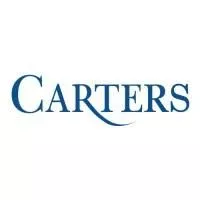In a recent trademark infringement case between a United States not-for-profit and Canadian not-for-profit, the importance of trademark rights was underscored in the context of protecting the reputation and identity of a not-for-profit organization. The court's ruling emphasized the significance of trademark rights in safeguarding against confusion and ensuring the integrity of an organization's brand. This case serves as a reminder to not-for-profit organizations of the legal protections afforded to trademarks and the consequences of unauthorized use or infringement.
The Telugu Association of North America (the "Applicant") is a U.S.-based not-for-profit corporation that owns and uses several registered and unregistered trademarks in Canada, including but not limited to the acronym TANA, and the mark TELUGU ASSOCIATION OF NORTH AMERICA. The Applicant has been using its registered and unregistered trademarks in Canada since at least as early as 2011. In 2020, without authorization from the Applicant, Telugu Association of North America, a Canadian federal not-for-profit corporation was incorporated. The Canadian not-for-profit adopted and used trademarks in Canada that the Applicant claimed were identical or confusingly similar to its trademarks, including the marks TANA and TELUGU ASSOCIATION OF NORTH AMERICA.
As a result, the dispute was centered around the use of the trademarks which were used and registered in Canada by the U.S. not-for-profit. In the application before the Federal Court, the U.S. not-for-profit sought monetary, declaratory, and injunctive relief for alleged trademark infringement, passing off, and depreciation of goodwill, contrary to various provisions of the Trademarks Act, RSC 1985, c T-13 (the "Act"), against the Canadian not-for-profit.
The Federal Court ruled in favour of the U.S. not-for-profit, given that the U.S. not-for-profit had prior use of identical trademarks and had established goodwill in the trademark in Canada. The Federal Court also held that the services of the organizations had significant overlap. On these grounds, the Federal Court found that the Canadian not-for-profit infringed upon the Applicant's rights in its trademarks, contrary to the Act.
The court ordered $18,750 in compensatory damages and ordered that the Canadian not-for-profit cease to use any of the trademarks going forward, that any material with these trademarks be destroyed, and that the domain name be transferred to the U.S. not-for-profit. The remedies available to the U.S. not-for-profit were in part granted given the fact that it had two registered trademarks in Canada.
This case serves as a poignant reminder to not-for-profits to register their trademarks in any jurisdiction in which it uses its marks. Enforcement strategies and remedies for infringement are far greater for registered trademarks than unregistered trademarks. The court's ruling emphasized the significance of trademark rights in safeguarding against confusion among the public and ensuring the integrity of an organization's brand. This case also serves as a reminder of the legal protections afforded to trademarks and the consequences of unauthorized use or infringement
Read the May 2024 Charity & NFP Law Update
The content of this article is intended to provide a general guide to the subject matter. Specialist advice should be sought about your specific circumstances.


